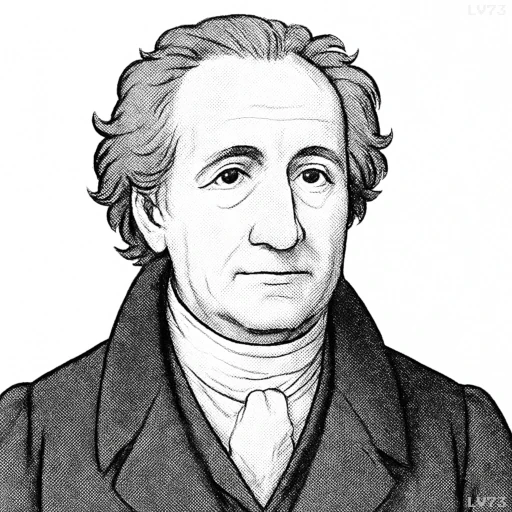“Girls we love for what they are; young men for what they promise to be.”

- August 28, 1749 – March 22, 1832
- German
- Poet, playwright, novelist, philosopher, politician
table of contents
Quote
“Girls we love for what they are; young men for what they promise to be.”
Explanation
Goethe contrasts the way we view and love girls versus young men, suggesting that girls are loved for who they are in the present moment—their qualities, personality, and being. On the other hand, young men are often loved for their potential, or what they promise to become in the future. This reflects a difference in how we perceive value and growth in people of different stages in life. The love for girls is seen as more immediate, based on who they are now, while the love for young men is more future-oriented, tied to the hope of growth and the realization of potential.
Historically, this idea reflects societal views that were more focused on gender roles and expectations. In Goethe’s time, young women were often valued for their current qualities, such as beauty, character, and virtue, while young men were seen as more dynamic, their worth often tied to what they could achieve or become in the future. Goethe may have been reflecting on how society’s expectations for men and women shaped the way love and relationships were perceived.
In modern contexts, this quote can be interpreted as a reflection of gender norms that still persist to some extent today, where women may be valued for their present qualities (physical or emotional), while men are often judged by their future potential (career, achievements, etc.). However, as societal norms evolve, there is a growing recognition of the need to value both genders for who they are in the present, rather than focusing solely on future potential or external expectations. The ideal in today’s world would be to appreciate both men and women for their current value, individuality, and growth, rather than reducing either to what they could become.
Goethe’s words remind us of the complexity of human relationships and how perceptions of love and worth are shaped by societal expectations. Love, at its best, should be based on appreciation for who a person is, now, rather than solely on what they might become.
Would you like to share your impressions or related stories about this quote in the comments section?





